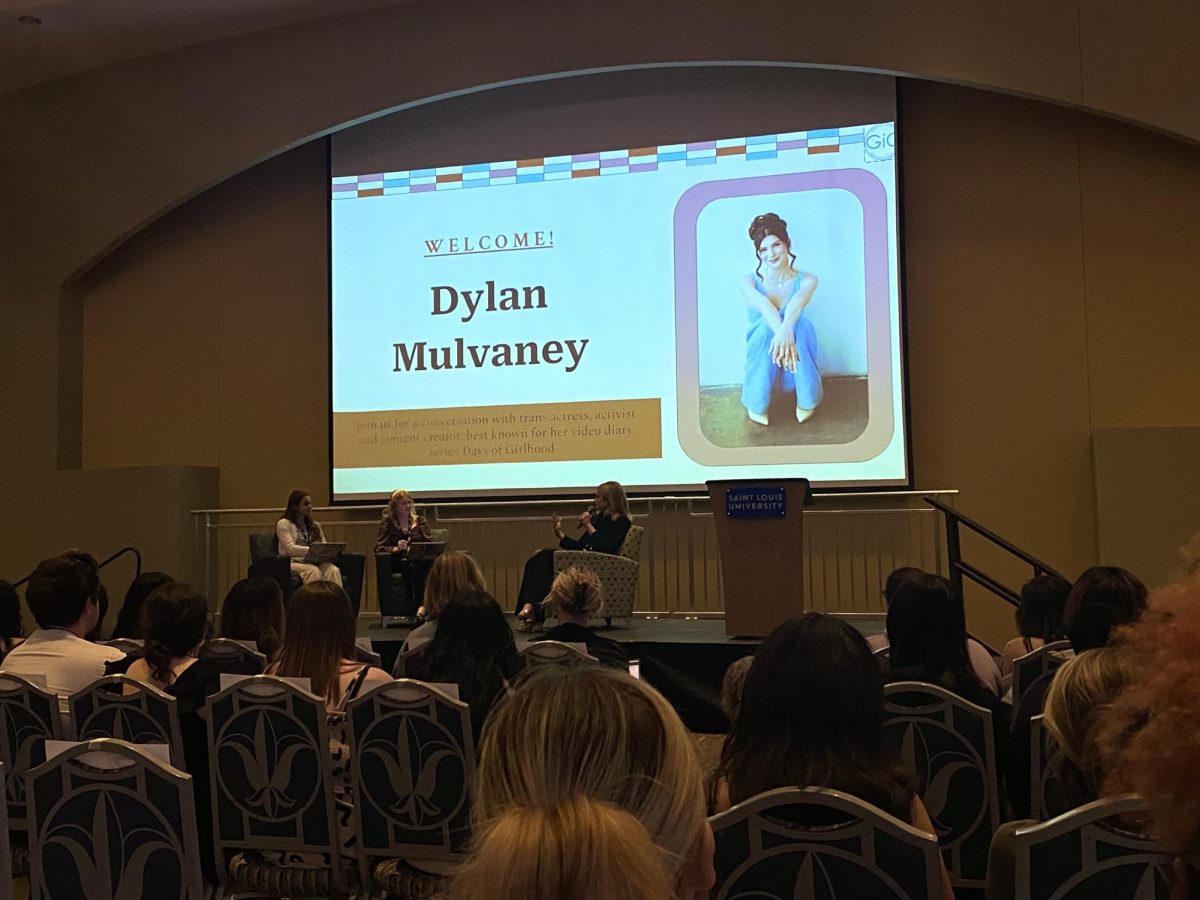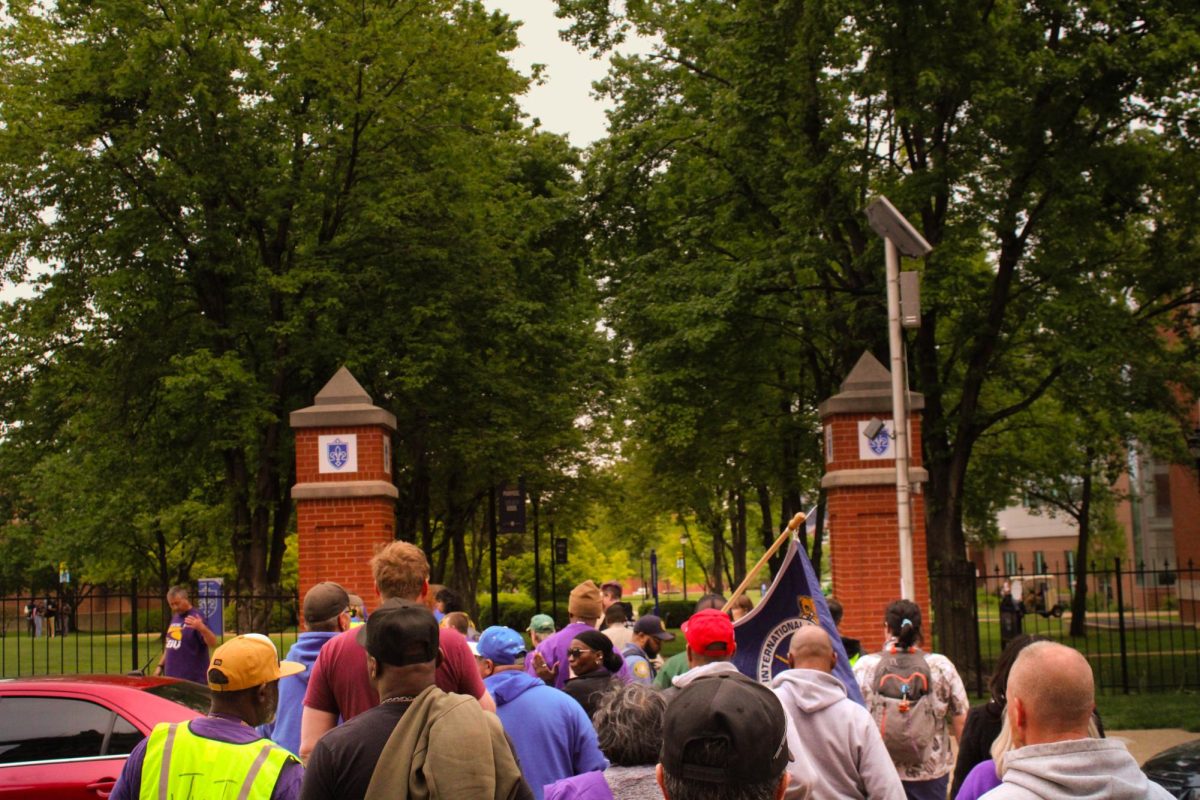Cornel West, prominent Princeton University professor, author of the book “Race Matters” and influential social and civil rights activist, addressed the crowded Busch Student Center Wool Ballrooms on Feb. 11, as Saint Louis University’s keynote speaker for Black History Month, sponsored by Great Issues Committee and Black Student Alliance.
West managed to keep a light-hearted and jocular tone despite the subject matter.
He acknowledged that the topic of his speech, Race and Democracy in the Age of Obama, is one of the most perplexing questions and complex issues that Americans face today.
West stressed the need for Socratic self-examination. In addition, he attributed the success of civil rights proponents such as Martin Luther King, Jr. and Malcolm X to Socratic self-examination, and expressed the need for those seeking equality and justice to analyze themselves before others.
“It’s only when we have the courage to think critically- and that is one of the greatest gifts of the African-Americans in this country—to think Socratically,” West said.
West also addressed the fact that knowledge doesn’t always come from the page of a textbook.
West went on to compare slavery and prejudice to modern day terrorism.
He contended that “black history in itself is a form of terrorism,” and stated that “what all Americans are going through now, the fear of being attacked, African-Americans went through for 244 years in America.”
He referred to black history as a powerful tool.
“Without [King, Wells], the Civil War, Abraham Lincoln… there would be no age of Obama,” he said.
After analyzing the history and impact of African-Americans in the United States, West targeted more contemporary issues.
He emphasized that, despite the election of President Barack Obama, we do not live in a post-racial era.
According to West, the election does not erase wounds that run deep in African-American history.
“We must acknowledge the past, the present, the future. [Politicians] want to win the election. Winning the election is not always dealing with the truth. Politicians are adroit, clever. Someone has to be free enough to tell the truth. To keep the stories going like the professors here do,” he said.
West also asserted that the burden of accepting harsh realities of the past falls to each American, not just policy-makers.
In order to combat this, West suggested opposing the typical measurements of success, such as job title and wealth.
“In this market-driven, capitalistic society where we erase the past, we don’t want to remember the stories from the past,” West said. “We just care about the individual, the narcissism, me and my career. It’s not about that. It’s about who you are as a human being. It’s not about what you do for a living, it’s about your calling.”
West also questioned the ideals of greed and the financial inequality that run rampant throughout society and the media.
“CEO salaries are expanding exponentially, while 20 percent of our children live in poverty in the richest country in the world. It is a moral disgrace,” West said.
“This greed erodes trust. It generates a spiritual malnutrition, an emptiness of the soul that leads people to addictions. People are focusing on hollow things such as money, and it’s emptying. It’s a moral constipation. They know what’s good, they just can’t get it out,” he said.
West was greeted with raucous applause when he said that “people are saying the recession is a catastrophe. What they don’t mention is that this has been a catastrophe for the middle and lower class for 35 years.”
He also criticized the Obama administration for placing people who had led to the economic downturn in his cabinet, and stressed the need for resources to be allocated toward education, childcare and welfare, instead of banks and big businesses.
Perhaps the most stressed point of West’s address was the need for Americans to overcome apathy, embrace compassion and side with those who struggle.
“Don’t become obsessed with the success of one and overlook the misery of those who suffer,” West said. “In a democracy, the president is a citizen and a servant. If he’s not tilting toward the weak, then he needs a serious correction. We need to really love poor and working people. There has to be some accountability for the well-to-do, since things have been stacked on their behalf for so long.”
West’s message is not limited to any one group in particular—his ideals and courses of actions are things we can all embrace in order to create a better society.
The end of his speech was met by a standing ovation, and followed by a question-and-answer session.
When asked how to combat the apathy that has become ingrained in the fabric of society, West offered this remedy:
“We need to become the change we talk about,” he said. “We need to exemplify the very commitment to love and justice. The only way that we shatter apathy is by trying to be courageous enough that it becomes contagious, so that others want to be courageous.”
The student turnout was immense, and the overall reaction to the address was very positive.
“I really enjoyed it. He posed challenging questions, and didn’t shy away from them. He remained objective,” junior Mary-Beth Ashley said. “It was very enlightening, and it helps us students to recognize the greater context of things and where we fit in.”






